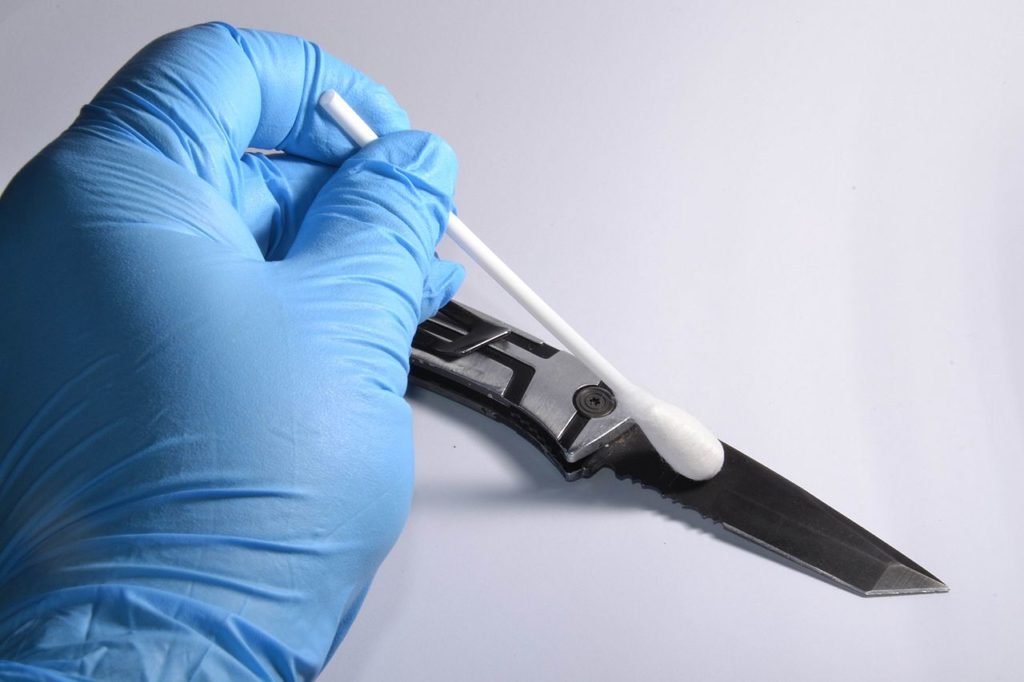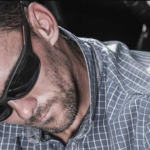Mistakes That Result in the Prosecution of Innocent People
Bad evidence and shortcuts in police investigations, including the analysis of scientific evidence, leads to overcharging and the prosecution of innocent people.

Police Crime Labs Routinely Make Errors
In September 2008, the Detroit Police Crime Lab was closed because an external audit found errors in the processing of evidence used in the prosecutions of murder charges, assault offenses, weapon (gun) cases, and other crimes. These errors can lead to the prosecution of innocent people. Since closing the Crime Lab, the Michigan State Police Forensic Sciences Division has taken over doing the crime lab work formerly done by the Detroit Police Department. Flooded with the new work, the Michigan State Police are taking longer than ever to process evidence. The errors in the testing of evidence led to the prosecution of countless innocent people.
Recent news that the Michigan State Police will open a limited lab with the ability to process fingerprints, ballistics, and drug evidence has come under fire by the Detroit Police and the Wayne County Prosecutor’s Office. Apparently, the Wayne County Prosecutor, Kym Worthy, believed the Michigan State Police were going to partner with the Detroit Police Department and build a full-service laboratory. Hopefully, this added limited lab will prevent the prosecution of innocent people.
The current backlog in cases is terrible news from defendants accused of crimes where forensic evidence is being used in the prosecution and can lead to the prosecution of innocent people. Because of the backlog, officials are encouraging police officers to make “smarter” decisions on what and how much evidence they submit for testing. From a criminal defense attorney’s perspective, this means greater potential for false charges, misleading scientific evidence, and a greater probability of innocent people being wrongfully convicted.
The CSI Effect in Jury Trials
Prosecutors frequently complain about the “CSI Effect.” According to law enforcement, jurors now expect scientific evidence to be introduced at trial when it is not practical to introduce this type of evidence in most cases. The truth is that the prosecution and law enforcement can get scientific and forensic evidence. Still, due to budget constraints, limited resources, and lack of manpower, they simply fail to investigate many crimes adequately.
If the failure to investigate adequately meant that the prosecutors would wait to prosecute until satisfactory scientific analysis could be completed, there wouldn’t be an issue. The delay in completing a scientific analysis is a considerable problem because prosecutions continue to move forward. With incomplete analysis and poor defense representation, people risk the prosecution of innocent people and wrongful convictions
Prosecutor Worthy has acknowledged that real-life cases have turned on scientific evidence and has indicated that she would like to see additional scientific analysis, like fingerprint testing of shell casings. It appears that adequate investigations will continue to be sacrificed, and innocent or over-charged defendants will continue to be prosecuted even when evidence is not correctly analyzed or collected.
A Fearless Battle to Prove a Client’s Innocence
The Michigan Criminal Defense Lawyers with LEWIS & DICKSTEIN, P.L.L.C., located in the City of Southfield, Oakland County, Michigan, will continue to defend wrongfully accused and over-charged defendants in cases where police investigations are inadequate and a failure of the system. It is our goal to prevent the prosecution of innocent people. Consider, for example, a case where he defended a young man on a murder charge in Wayne County in 2008. Essentially, the allegation was that the firm’s client, a 19-year-old man, another young man, and the other man’s girlfriend murdered two downriver men and burned their bodies and home. The defense was a war, and the assistant prosecuting attorney was unwilling to consider months of arguments regarding shortcomings in the forensic analysis in the case and lack of police investigation. Analysis of DNA and cell phone tower evidence was delayed and inadequate.
Convinced of their clients’ innocence, the defense attorneys battled the prosecutor and conducted independent investigations. The judge, advised of the problems with the evidence and the arguments regarding the defendants’ innocence, was utterly unwilling to help the defendants and simply ignored arguments regarding the hearsay evidence, inadequate investigation, and shaky forensic evidence.
The Prosecution of Innocent People in this Case Failed!
Fortunately, the tireless efforts of the defense and much delayed forensic analysis demanded by the defense ultimately proved the defendants were innocent. Ultimately, the real killer was charged and convicted. Civil suits led by LEWIS & DICKSTEIN, P.L.L.C., and other attorneys on behalf of the defendants and against law enforcement soon followed. This is an example of how our firm can fight for you to prevent the prosecution of innocent people.
This case and countless others demonstrate the importance of an aggressive defense by highly qualified criminal defense attorneys. The defense bar hopes that prosecutors will insist that law enforcement not cut corners and thoroughly investigate evidence before proceeding with prosecutions. Loren Dickstein has indicated:
I understand when prosecutors are upset that a defendant, who they believe is guilty, is acquitted at trial; however, I would hope that they would be furious and outraged when there is a chance that an innocent person may be wrongfully convicted because of law enforcement shortcuts or, even worse, as a result of unreliable evidence. Now that is a travesty that I will never stop fighting against.

Your Best Defense in Michigan to Criminal Charges
An experienced attorney from LEWIS & DICKSTEIN, P.L.L.C. can offer additional information and a ferocious defense for any felony or misdemeanor charges. A skilled, top-notch criminal defense attorney is available to speak to you.
Call us today at (248) 263-6800 for a free consultation or complete an online Request for Assistance Form. We will contact you promptly and find a way to help you.













